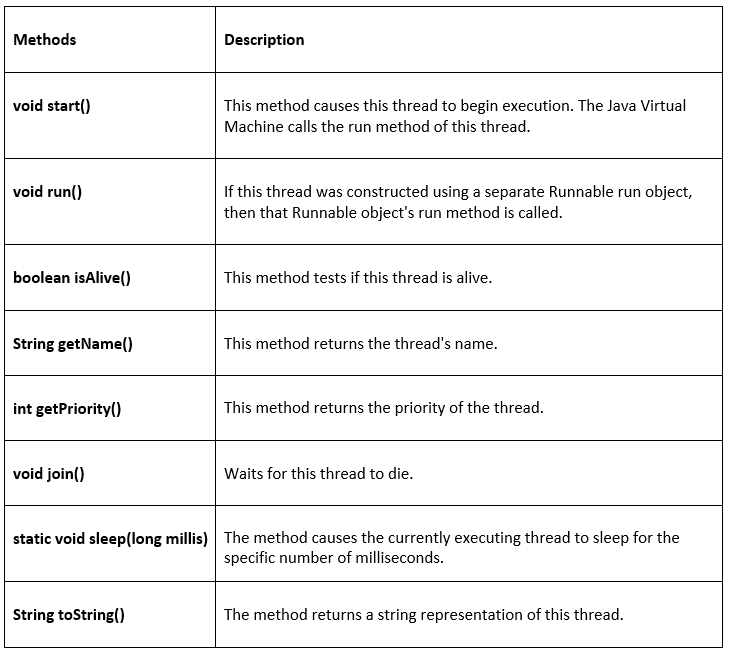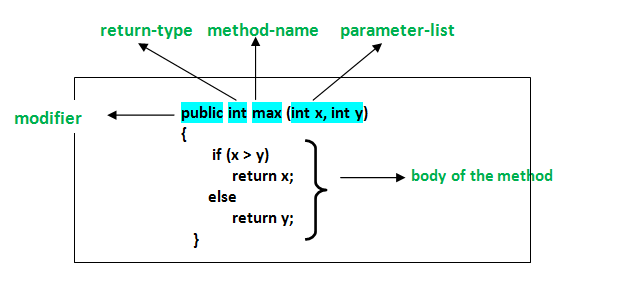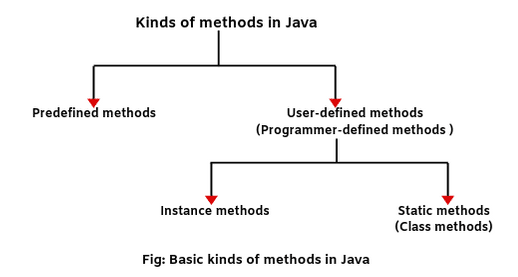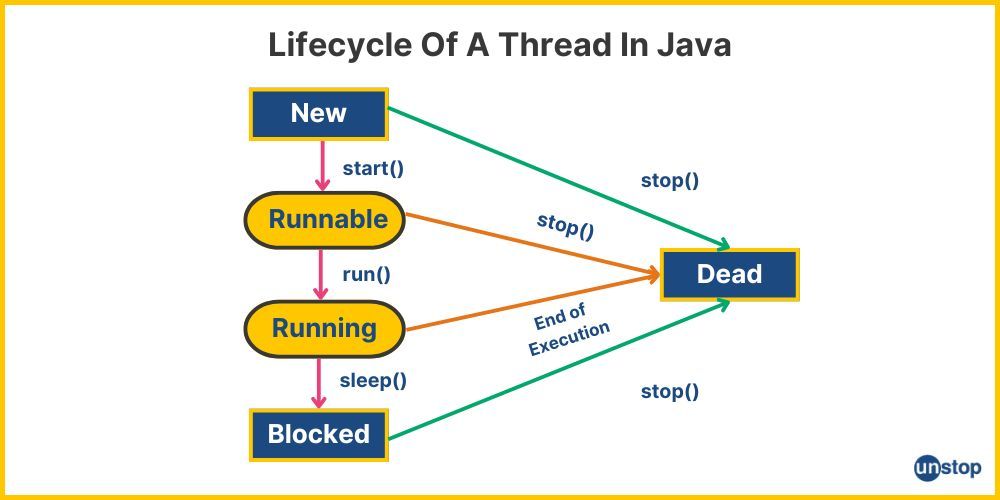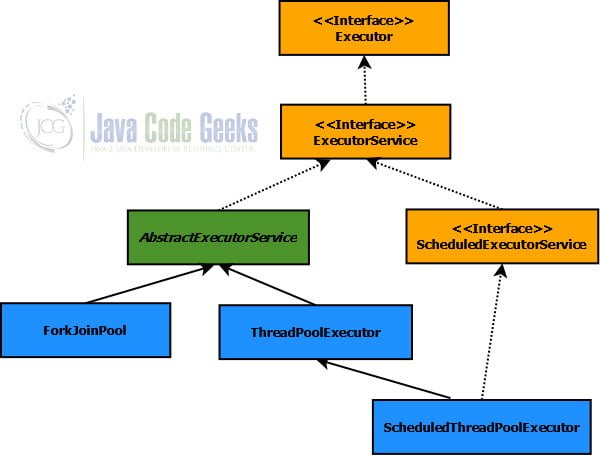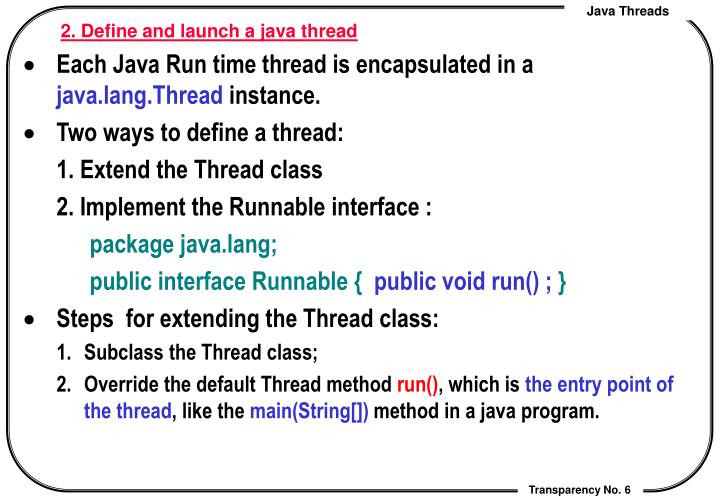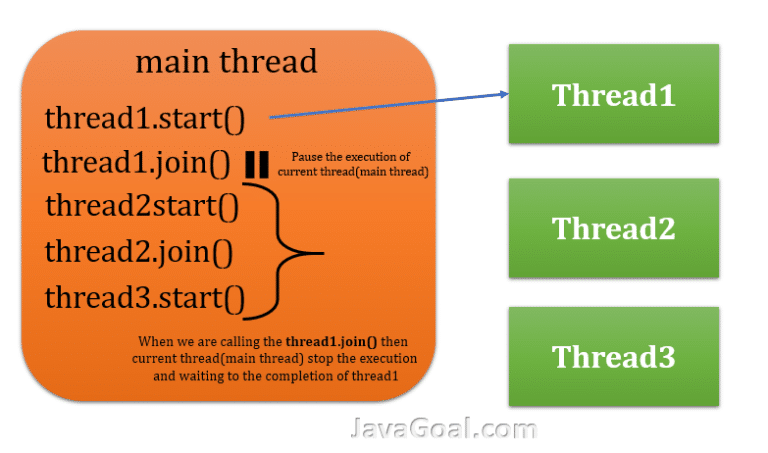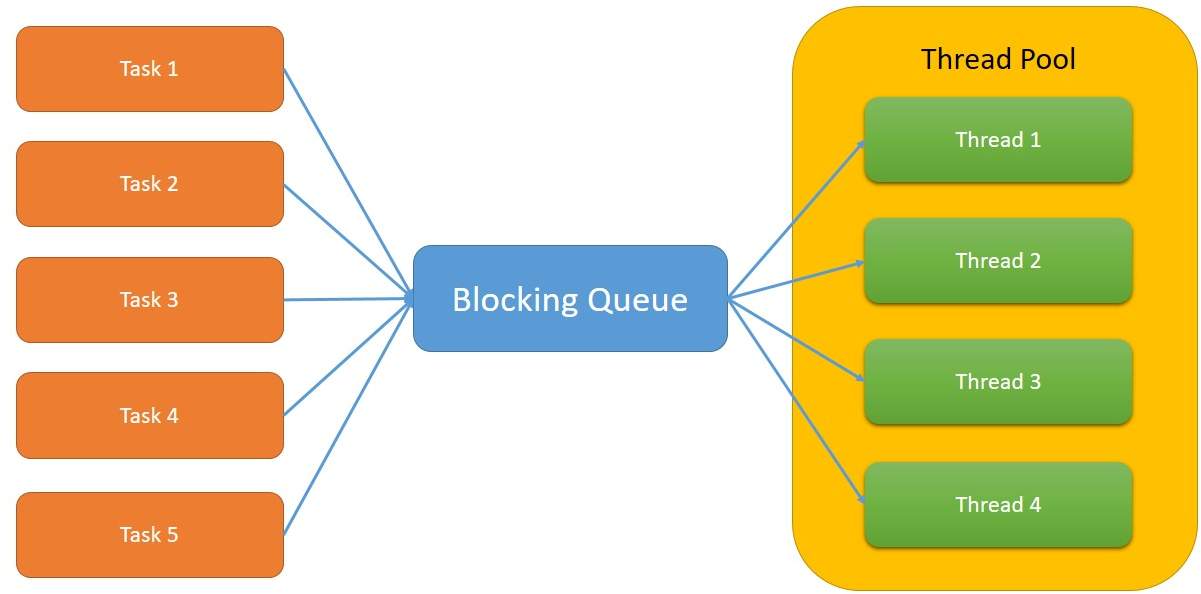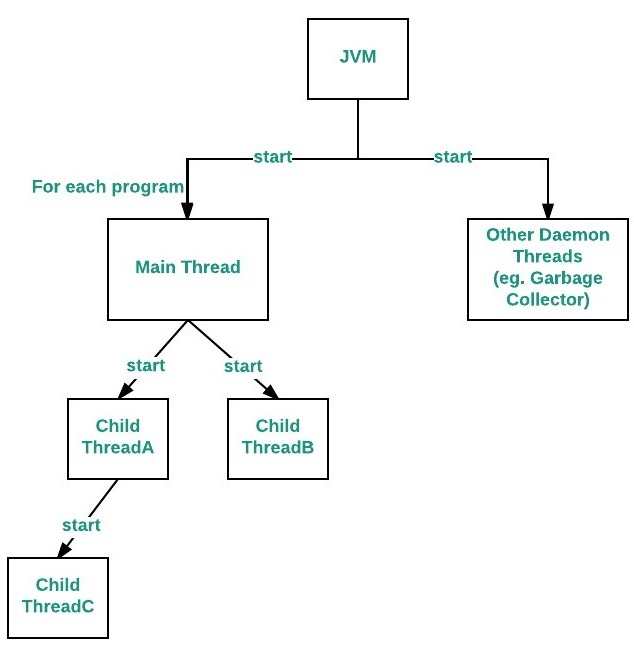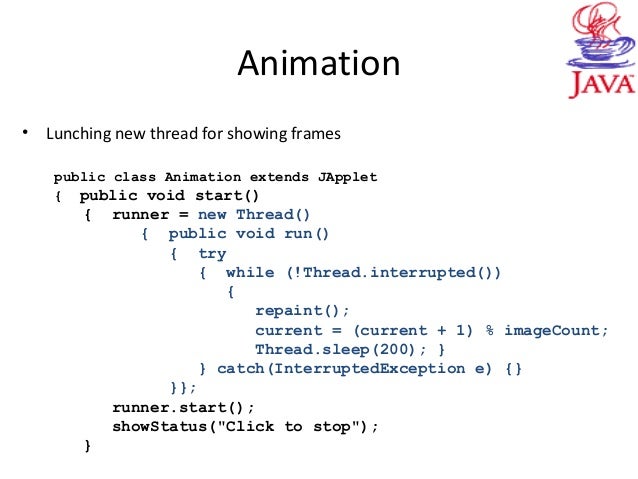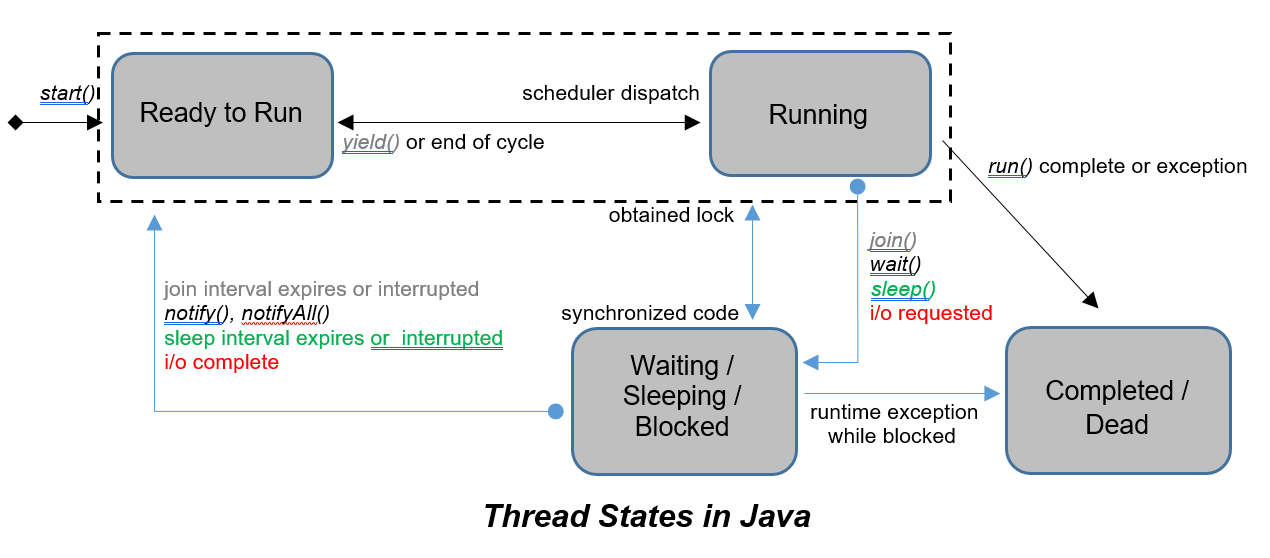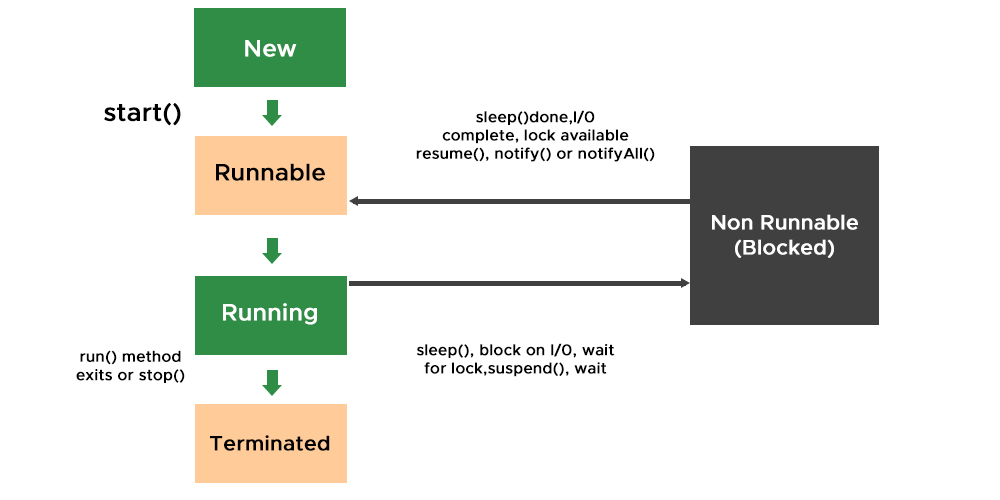Mention Any Four Thread Methods In Java

In the intricate world of Java programming, multithreading stands as a cornerstone for building efficient and responsive applications. The ability to execute multiple parts of a program concurrently, or threads, drastically improves performance and user experience. However, mastering multithreading requires a solid understanding of the core methods that govern thread behavior.
This article dives deep into four essential methods related to thread management in Java: start(), run(), join(), and sleep(). We will explore their functionality, purpose, and potential pitfalls, equipping developers with the knowledge to effectively harness the power of multithreading. Understanding these methods is crucial for avoiding common concurrency issues and building robust, scalable Java applications.
The Foundation: start() and run()
The start() method is the gateway to creating a new thread of execution. When you call start() on a Thread object, it doesn't immediately execute the code within the thread. Instead, it requests the Java Virtual Machine (JVM) to create a new operating system thread and schedules it for execution. This new thread then calls the run() method.
The run() method, on the other hand, contains the code that will be executed by the thread. You must override the run() method in your custom Thread class to define the specific task that the thread will perform. Simply calling run() directly, instead of start(), will execute the code in the current thread, defeating the purpose of multithreading. It's just like calling a regular method.
"Calling start() ensures that the run() method is executed in a separate thread, enabling concurrency."
The key difference lies in the creation of a new execution context. start() initiates this new context, while run() simply defines the code that will be executed within it. Failing to understand this distinction can lead to unexpected behavior and missed opportunities for parallel processing.
Synchronization and Coordination: join()
The join() method provides a mechanism for one thread to wait for another thread to complete its execution. When a thread calls join() on another thread object, it pauses its own execution until the target thread finishes. This is essential for coordinating tasks that depend on the completion of other tasks running in separate threads.
Without join(), it's difficult to ensure that certain operations occur in the correct order when using multiple threads. For instance, if one thread is responsible for generating data and another thread is responsible for processing it, the processing thread needs to wait for the data generation thread to finish. join() provides that synchronization capability.
The join() method can also accept a timeout parameter, allowing the waiting thread to resume execution after a specified period, even if the target thread hasn't completed. This prevents the waiting thread from becoming indefinitely blocked in case the target thread encounters an error or takes an unexpectedly long time to finish.
Introducing Delays: sleep()
The sleep() method pauses the execution of the current thread for a specified duration. This method is often used to introduce delays in thread execution, allowing other threads to run or preventing a thread from consuming excessive CPU resources. It accepts a time in milliseconds or, in overloaded version, milliseconds and nanoseconds.
Unlike join(), which waits for another thread, sleep() directly affects the calling thread. While a thread is sleeping, it temporarily relinquishes its CPU time, allowing other threads to potentially execute. This helps to avoid scenarios where one thread monopolizes the CPU, leading to poor performance for other parts of the application. It's a static method that belongs to Thread class.
A crucial point to remember is that sleep() can throw an InterruptedException. This exception is thrown when another thread interrupts the sleeping thread. Proper exception handling is therefore crucial when using sleep() to avoid unexpected program termination.
Moving Forward with Multithreading
Mastering the start(), run(), join(), and sleep() methods is fundamental to effective multithreading in Java. These methods provide the core tools for creating, managing, and coordinating threads, enabling developers to build concurrent applications that are both responsive and efficient. Failing to grasp these basic principles can lead to concurrency issues, performance bottlenecks, and unpredictable program behavior.
As applications become increasingly complex and demand greater performance, a deep understanding of Java's threading capabilities will be more important than ever. While modern concurrency frameworks offer higher-level abstractions, a solid foundation in the core thread methods remains essential for debugging, optimizing, and troubleshooting multithreaded applications. Further exploration into concepts like locks, semaphores, and concurrent collections will enhance your ability to build truly scalable and robust systems.

